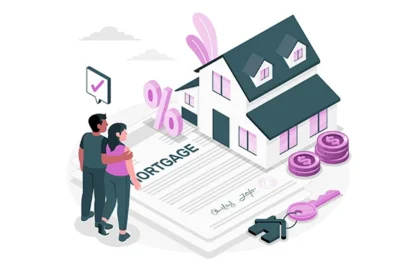Choosing whether or not your business should take Advantages of Enterprise Resource Planning (ERP) software can be a daunting decision. If the useful program’s implementation is for the first time ever, it will be a challenging task. One may think it is possible to operate without ERP software. But if someone wants to see a good change in business and experience overall growth, it is essential to implement it.
ERP software is one of the software systems that incorporate customer relationship management, accounting, and core HR, and supply chain management capabilities in one software package. Because of the sophistication and number of features available through the ERP software, large companies have generally implemented it.
Advantages of Enterprise Resource Planning importance revolves around what they can do for any company. ERP handles multiple corporate processes by streamlining and automating day-to-day business activities. The program enables a leaner and more efficient operation and offers a full, 360 view into its ins and outs. Companies can increase user efficiency and productivity with the apps, being agile, which improves customer service.
Let’s look at the advantages of enterprise resource planning identified by companies after implementation.
Competitive Advantage
It is relevant that ERP software needs a significant investment, but there is also an even higher cost. While some industries choose to adhere to the tried and tested pasts practices, others are finding innovations in technology. Users can see changes across multiple departments, with so many advantages that ERP offers. Manufacturers can’t afford to delay an ERP implementation as their competitors invest in ERP and start reaping the benefits.
Enhanced System Effectiveness
The ERP program removes unnecessary procedures and significantly decreases the need to enter information manually. It not only increases user efficiency but also reduces the risk of incorrect data that could result in costly business errors. Implementing an ERP program would also boost day-to-day business operations by streamlining business processes. It is one of the most significant advantages of enterprise resource planning.
Specific Forecasting
ERP software offers the customers and managers; in particular, the information they need to make more accurate forecasts. This helps tech users, and companies as a whole, think ahead and prepare appropriately. With better forecasting, companies can efficiently reduce operating costs, save resources, and be a more productive organization overall.
Collaboration with Department
No one wants to run a siloed company with each department operating separately from each other. Departmental collaboration is a critical and often necessary part of the business, especially since business projects often involve more than just one department. With the data entered in the ERP platform being structured and reliable, there is no reason why teams can’t work together whenever appropriate. The software also focuses on almost every aspect of a company, thus naturally promoting interdepartmental, collaborative efforts. The advantages of enterprise resource planning are that it updates real-time, reliability to connect, exchange information, and use it.
[Also read:Enterprise Mobility]
Scalable Resource
Structured ERP systems allow the introduction of new users and functions to expand the initially implemented solution over time. If a company is large or small, ERP raises with it, being able to absorb new users and new rounds of data once your company is ready to expand.
Interconnected Information
ERP software serves as a central center for all the essential details that the organizations need to manage daily operating processes. No more data-spreading problems through different databases; all information will be processed in a single location. Know your customers in one place, their orders, and your inventory.
Cost Savings
Everyone wants to be careful about their finances for any company and avoid making expensive mistakes that could potentially damage the company. ERP software lowers administrative and operating costs with one source of reliable and real-time information. It enables companies to spend resources in other and much-needed areas.
Streamlined Processes
As companies expand their operations to become more complex, which inevitably increases the potential to make expensive mistakes? ERP improves performance and productivity by allowing users to manage complex systems, eliminating re-entry of data, and boost functions such as production, order fulfillment, and distribution.
Mobility
The advantages of enterprise resource planning include concentrating on customers and offering delivery models that can provide the same incentives. The ERP software’s adaptability is essential, as it improves efficiency and makes knowledge available wherever you are.
Customized Reporting
ERP software helps make reporting faster and more tailor-made, suited for all the needs. With improved reporting capabilities, the company can more effectively respond to complex data requests. This improves productivity, completes processes faster, and helps to close projects without intermittent long wait times.
Enhanced Productivity
Through automating repetitive procedures, users get more flexibility to focus on other time-sensitive projects and activities that may require more attention and time. Also, because the solution has been developed for ease of use, users should function more efficiently.
Regulatory Compliance
One benefit of ERP software, which sometimes goes unnoticed, is how it fits well with industry regulatory enforcement. Powerful ERP systems are building to keep track of the industry regulations and control enforcement changes.
Flexible Systems
Modern systems like ERP applications are robust, versatile, and configurable. They’re not a one-size-fits-all solution but can be custom-made to a business’s particular needs. ERP software will adapt to a growing business’ ever-changing needs, meaning you don’t have to buy a new solution as your needs change or your company expands.










